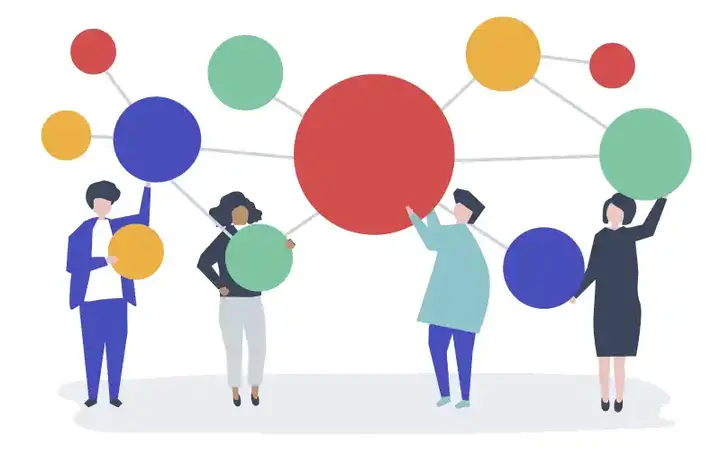A system to remember everything: clear, simple, and effective

In today's fast-paced world, where information is constantly rushing from all directions, having a reliable system to remember everything can be a game-changer. Whether you're a student trying to retain complex theories, a professional dealing with multiple projects, or someone simply looking to improve daily memory, a structured memory system can improve productivity and reduce stress. This article explores memory mechanisms, differences in people's memory behaviors, effective memory aids, and reliable systems to help you remember everything efficiently.
Show key points
- A structured memory system can significantly boost productivity and reduce stress by helping individuals efficiently store and retrieve information.
- Understanding the brain's memory processes—encryption, storage, and retrieval—is essential for improving overall memory retention.
- Memory abilities vary among individuals due to factors like age, lifestyle, and cognitive differences, making personalized strategies crucial.
- ADVERTISEMENT
- Genetic influences, including inherited traits and gene expression affected by the environment, play a key role in individual memory capacities.
- Employing memory aids such as mnemonics, visualization, and chunking can enhance the brain's ability to retain and recall information.
- Techniques like the method of loci, peg systems, and spaced repetition offer structured ways to improve long-term recall.
- Proven systems like spaced repetition software (SRS), active recall, and mind mapping have shown exceptional effectiveness in boosting memory performance.
1. Understand memory mechanisms

Memory is the brain's way of encrypting, storing, and retrieving information. This includes three basic operations: encryption, storage, and retrieval.
Recommend
1. Encryption: This is the initial learning of information. When we encounter new information, our brain turns it into a neural code that it can use.
2. Storage: Once information is encrypted, it must be stored in the brain for future use. This process involves short-term and long-term memory. Short-term memory temporarily retains information, while long-term memory stores it for long periods.
3. Retrieval: This is the process of retrieving stored information when needed. Successful retrieval depends on how well the information is encrypted and stored.
Understanding these mechanisms helps in dealing with each stage and enhancing it to improve overall memory retention.
2. Different people, different memory behaviors

Not everyone remembers things in the same way. People exhibit diverse memory behaviors based on various factors such as age, lifestyle, and cognitive abilities.
• Age: Memory can change with age. Young people often have more short-term memory
pronounced, while older adults may excel in long-term memory.
• Lifestyle: A healthy lifestyle, including regular exercise,
A balanced diet, and adequate sleep, will significantly affect memory performance.
Cognitive abilities: Some people naturally have better memory abilities due to differences
Structural and functional in the brain.
Recognizing these differences is critical to tailoring memory strategies according to individual needs.
3. The genetic aspect of memory differentiation

Heredity plays an important role in determining an individual's memory abilities. Research has shown that certain aspects of memory, such as working memory capacity and the ability to form long-term memories, can be influenced by genetic factors.
• Genetic influence: Studies of twins have revealed that genetic factors can represent
About 50% variation in memory performance. Specific genes can be linked to brain structure and function
Neurotransmitters that enhance memory abilities.
Inherited traits: Families often share traits that affect memory, such as the extent of
Attention and speed of processing. If parents have excellent memory skills, there is a higher chance that
Boys inherit some of these traits.
• Epigenetics: This emerging field studies how gene expression is affected
BThe environmental factors. Although genetic predisposition to a strong memory is possible, the environment and pattern choices
Private life can significantly affect how these genes are expressed.
Understanding the genetic aspect highlights the importance of a supportive environment and a healthy lifestyle to maximize the genetic potential for memory excellence.
4. Memory aids: tools to enhance retrieval

Memory aids are tools or techniques that help encrypt, store, and retrieve information more effectively. Some common memory aids include:
1. Mnemonics: These are techniques such as abbreviations or rhymes that simplify information into formats that are easy to remember. For example, the masculine word "HOMES" helps to remember the Great Lakes region (Huron, Ontario, Michigan, Erie, Superior).
2. Visualization: Creating mental images of information can make the process of remembering easier. Visualizing a story or scenario can connect abstract information with concrete images.
3. Shredding: Breaking down large pieces of information into smaller, manageable chunks helps improve memory. For example, phone numbers are often remembered as parts.
5. Remembering systems

Many systems can help systematically improve memory. These systems offer systematic methods to enhance recall.
1. Loci method: Also known as memory shortness, this technique involves linking information to specific locations in a familiar place. When mentally wandering around this place, the stored information can be retrieved.
2. Splicing system: This method involves linking new information to a set of previously saved "wedges" or fasteners. For example, if you save numbers as pegs, you can associate items with those numbers to remember them in sequence.
3. Spaced repetition: This system involves the distribution of review sessions over increasing time intervals. By periodically reviewing information, long-term memory retention can be promoted.
6. The most effective remembering systems

Among the various memory systems, some have proven exceptionally effective through research and practice.
1. SRS Spaced repetition systems: used on a scale
Broad in language learning applications such as Anki or Duolingo, SRS systems help maintain
on information in long-term memory by reviewing it at intervals
Strategic.
2. Active recall: This method involves effectively stimulating memory during the learning process. Instead of
From a negative reading, a self-test can be done on the substance that strengthens neural connections.
3. Mind mapping: This visual tool helps organize information hierarchically, making
Complex information is easier to understand and remember. Branches and nodes are used to represent ideas and their associations.
Conclusion

Developing a system to remember everything should not be complicated. By understanding how memory works, acknowledging individual differences, and leveraging effective memory aids and regular systems, anyone can enhance their memory abilities. Whether it's through the visual associations of the Loci method, the spaced repetition method at regular intervals, or thanks to the organizational power of mind mapping, there is a straightforward, simple and effective approach for everyone. It is recommended to implement these strategies, monitor the transformation of memory skills, and enjoy the achievement that makes daily life and learning tasks more manageable and less stressful.
![]()
Egypt's First Astronomical Observatory: Discovering a Window to the Universe
Archaeologists have uncovered Egypt’s first known astronomical observatory in the desert at Nabta Playa, dating back 4,500 years. This exciting find confirms the Egyptians’ deep cosmic knowledge and spiritual connection to the stars, showing they systematically studied the sky long before many other ancient civilizations. more- ADVERTISEMENT
![]()
How to identify and transform a bad manager: lessons learned and the path to success
Bad managers hurt morale, kill productivity, and damage a company’s success. They micromanage, lack empathy, and avoid conflict, leading to high turnover and chaos. But the journey to becoming a good manager starts with self-awareness, better communication, and trust—turning toxic workspaces into thriving ones. more- ADVERTISEMENT
![]()
Why do people buy? Simplifying the theory of purchase
Understanding why people buy is key in commerce—whether it's to meet basic needs, fulfill desires, or express identity. Buying behavior is shaped by psychological, social, economic, and marketing factors, and recognizing these helps create better marketing strategies that truly connect with consumers. more- ADVERTISEMENT
![]()
Habits that distinguish men from boys
Habits that distinguish men from boys more- ADVERTISEMENT
![]()
At each moment, there are about 2,000 thunderstorms occurring on Earth.
Thunderstorms are powerful and common, with up to 2,000 happening worldwide at any time. Florida sees the most in the U.S., while Venezuela’s Lake Maracaibo holds the record for lightning. Remember: if you hear thunder, go inside—lightning can be deadly, even from miles away. more- ADVERTISEMENT
![]()
Sama Beirut... Unique skyscraper
Sama Beirut, Lebanon’s tallest tower, rises with elegance in Achrafieh, offering stunning sea and mountain views. Built by Fadi Antonios out of love for his homeland, it blends green space, luxury living, and modern safety features—all in one iconic landmark symbolizing hope and resilience. more- ADVERTISEMENT
![]()
Bermuda Triangle Puzzle
The Bermuda Triangle remains a thrilling mystery filled with tales of vanishing ships, eerie time loss, and ghostly weather. Despite scientific theories and advanced research, the true cause of these disappearances continues to puzzle and intrigue the world. more- ADVERTISEMENT
![]()
Makkah: A Journey of Faith to the Most Holy Place on Earth
Makkah is more than a city—it’s a powerful spiritual journey. Standing before the Kaaba, climbing Jabal al-Nur, or praying at Mount Arafat offers a deep connection to history, faith, and humanity. For any traveler, Mecca promises a unique and unforgettable experience rooted in timeless Islamic heritage. more- ADVERTISEMENT
![]()
Self-driving cars - a dream or a reality to be realized?
Self-driving cars - a dream or a reality to be realized? more- ADVERTISEMENT
![]()
The solar system had nine planets. Maybe he's still doing it? Here's the latest space news today
Pluto’s “demotion” in 2006 marked the start of an exciting new chapter in space discovery, revealing a growing family of dwarf planets and pointing toward a possible mysterious ninth planet. With powerful tools like the James Webb Telescope, we’re closer than ever to uncovering strange new worlds—even beyond our solar system. more- ADVERTISEMENT





















